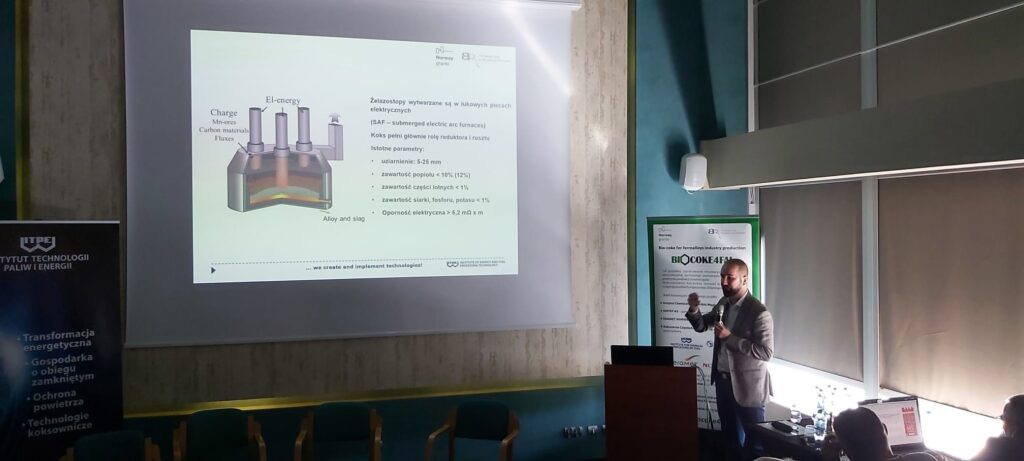At the XXX jubilee scientific and technical conference KOKSOWNICTWO 2022, a thematic discussion panel was held entitled: Bio-coke – a chance for the Polish cokemaking industry?. The panel was led by an employee of the Institute of Fuel and Energy Technology (ITPE), Dr. Michał Rejdak. Research on the production of bio-coke, i.e. a hybrid reducer produced on the basis of coal blends with the addition of biomass substances, has been carried out in the world for over a dozen years, but in the last few years, due to the fight against global warming and the desire to minimize greenhouse gas emissions, they have gained considerable momentum. The idea of bio-coke is based on the replacement of part of the elemental carbon of fossil origin, the source of which is coking coal, with elemental carbon from renewable sources – biomass. Due to the assimilation of carbon dioxide during the photosynthesis process, biomass is considered a zero-emission resource, therefore the introduction of biomass-based carbon should contribute to the reduction of CO2 emissions from the processes of coke (bio-coke) utilization. The practical implementation of the above-mentioned idea consists in the production of bio-coke in functioning coke oven batteries, using for this purpose coal blends with properly prepared biomass raw materials – raw or thermally processed biomass (torrefaction, charcoal, etc.).
The aim of the panel was to familiarize the participants with the current state of knowledge and technology on issues related to the production of bio-coke, to present our experience in the field resulting from the BioCoke4FAI project implementation and to discuss the possibility of implementing this technology in the practice of domestic cokemaing, which is currently the European leader in the production and export of high-quality coke. The panel met with great interest of the conference participants – representatives of both industry and the scientific community. There was a lively discussion about the wide implementation potential of the technology in question. Particular emphasis in the discussion was put on the elements related to the economic and ecological aspects of obtaining biomass raw materials, the process of thermally processed biomass production, including the phenomena and mechanisms occurring in its course. It was concluded that the industrial implementation of bio-coke production technology requires the acquisition of full knowledge and optimization of factors shaping its quality parameters, taking into account the requirements of industrial processes in which it will be used.

